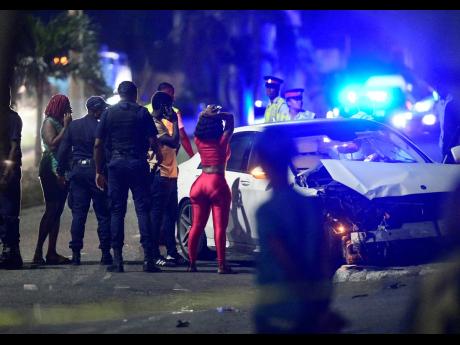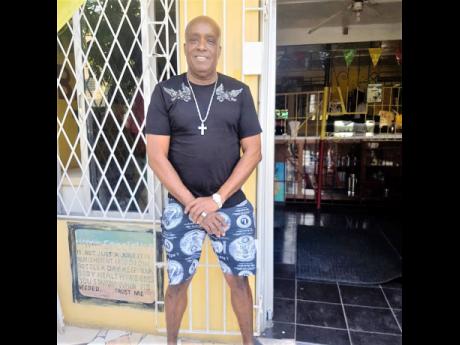UK hangs tough on deportations - Some ex-cons killed after resuming career of crime, says high commissioner
The recent killings of five Jamaican convicts deported from Britain have sent off alarm bells among advocacy groups in that country, but local British authorities have remained resolute that wrongdoers will continue to be sent on a one-way ticket back to Kingston.
The United Kingdom Guardian newspaper reported the concerns that human-rights groups and lawyers in Britain had with the deportation of criminals being sent back to Jamaica and end up being killed.
They contended that it was a breach of Britain’s human-rights legislation and a ‘double punishment’ for the deportees, pointing to Jamaica’s high murder rate of more than 40 per 100,000.
Among those who have been killed are Owen Clarke (‘Father Fowl’), 62, of the British Link Up crew, who was shot and killed by armed men on February 23, 2019; Dewayne Robinson, 37, known as ‘Little Wicked’, murdered on March 4, 2018; Alphonso Harriott, 56, known as ‘Oney British’, also of the British Link Up crew, slain on March 29, 2019; Paul Mitchell, 50, fatally stabbed on December 31, 2018, in a grocery store where he worked; and Hugh Bennett, 48, a shopkeeper, stabbed to death on December 31, 2018.
However, speaking with The Sunday Gleaner on the matter, High Commissioner Asif Ahmad strongly defended the British government against the criticism, reasoning that the chilling crime rate in Jamaica was not a sufficient excuse to not enforce a long-held policy.
“Every country has a policy of deporting people who are undesirable aliens, in the sense that, if they have served time in prison, the very next step is that they are deported,” Ahmad said.
“We are talking about a situation where, under any circumstances, a person who is of Jamaican origin, after their time is finished, their only option is to return to their country of origin. The fact that the conditions here can be challenging is something that we are dealing with.”
Without naming any specific person, the high commissioner alleged that convicted deportees became involved in the criminal underworld once they had returned to Jamaica, suggesting that they may have become targets of rivals.
It’s a direct counter to the argument that there was deep fear by deportees from Britain.
“So sadly, they just became a statistic of homicides in the country. You have people, before they were detained in the United Kingdom, were coming back quiet freely. It’s not like they were suddenly having to come back and face this ‘incredibly dangerous country’.
“What has happened to these sorts of people is that they had basically resumed the career that they have been involved with or are paying the unfortunate price for being in dangerous activity,” Ahmad suggested.
And while maintaining that there will be no policy change, he pointed out that the United States of America sends more convicts back to Jamaica than does Britain.
“We are not going to be immediately changing our policy and our approach, because we take steps to identify that the right people are being deported and we are going to get increasingly better at it.”
Deportation flights from the UK to Jamaica resumed in February following the Windrush scandal that hit the Theresa May administration, resulting in the then powerful Home Office Secretary Amber Rudd resigning in April 2018.
London has agreed to a compensation package of £200 million, which may rise, to approximately 15,000 Windrush victims who migrated from Jamaica and other Caribbean countries to rebuild postwar Britain. Descendants of victims may also make claims.


